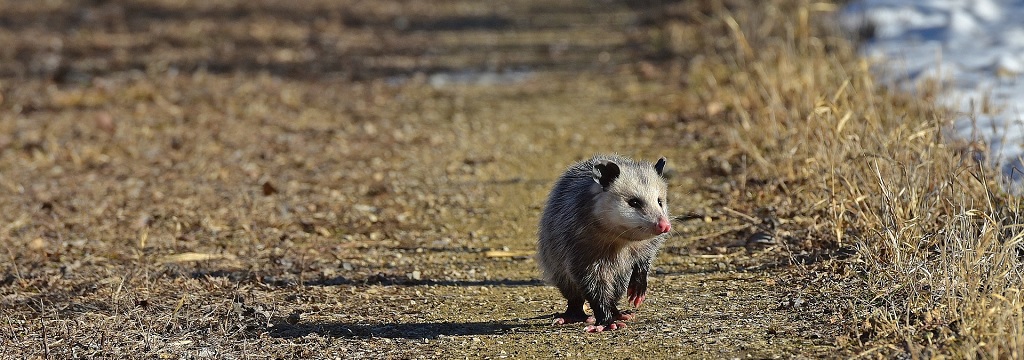Negative and positive effects of habitat fragmentation on animals

The living range of certain animals can become fragmented into several parts, and it may be difficult for them to pass from one to another. This is called habitat fragmentation. There are many ways the fragmentation of habitat is harmful for some animals, and there is a tendency to assume it is typically bad for them. However, there are ways in which it can actually be positive overall for animals. We will see this below, after clearing up some common confusion about this issue.
Clearing up confusions about the relationship between habitat fragmentation and the wellbeing of animals
Habitat fragmentation doesn’t necessarily imply a loss in the total amount of space where a group of animals can live. It’s therefore distinct from a reduction in the absolute amount of habitat.
There are other misconceptions about habitat size and habitat integrity. It is often assumed that the larger the habitat size, the better for animals, because this allows more animals to exist. But this idea confuses having larger populations with an improved situation. There is no necessary correlation between these two things. In fact, the opposite is often the case, especially when we consider animals who usually have lives with more suffering than pleasure. This may apply to animals who have large numbers of offspring, most of whom die shortly after coming into existence. In such cases, smaller and less dense populations are better.
When many people think of habitat fragmentation, they may imagine it occurring through human action. We should bear in mind, however, that it can also happen through natural processes. Examples of this include floods, fires, changes in ocean currents, and changes in salinity, among others. For some animals, certain barriers may be impassable, while for others (such as flying animals) they may not pose a problem. The vast majority of animals are very small, and events that might seem minor to us can divide the areas where they live. For a small insect, a strong breeze that separates two previously adjoined leaves could constitute a fragmentation event of this kind. What constitutes habitat fragmentation is therefore relative to the needs and abilities of specific animals.
Given this, it appears that we should be wary of biases leading us to focus only on vertebrates and only on human caused harm. Because many animals still have lives that are not directly affected by human action, we should be aware of and concerned about what can happen to animals due to natural processes.
Different effects on animals, negative and positive
Habitat fragmentation can be harmful to animals by making it more dangerous to access all the parts of their range, and by potentially cutting them off from access to resources. Animals who are specialized to eat only limited types of food may face new dangers in order to find enough opportunities to eat, or risk suffering from hunger. Animals can drown, for example, while crossing a river. Animals who are less mobile may be more severely affected because it is more difficult or even impossible for them to cross barriers. In some cases, overpasses and underpasses that allow specialist animals to cross have been built, and this could be implemented much more widely.
The most important effects resulting from habitat fragmentation, however, are long-term ones. They include variations in population sizes, distribution changes, and evolutionary changes. These can be negative for the welfare of animals, but they can also be positive for them. These effects are harder to estimate. However, they are greater in scale, because they affect many generations reaching far into the future, over a duration during which many more animals will live.
One such effect that is typically quite negative is when habitat fragmentation evolutionarily selects for generalist animals who have large numbers of offspring over specialist animals who have fewer offspring and give more care to each one. Specialist animals tend to need more stable environments to do well. The selection of the more generalist animals who have more offspring usually leads to more suffering in the long run because their offspring are more likely to die of hunger, exposure, or predation shortly after being born or hatched. Generally, the more offspring there are, the fewer survive, and most of them experience little more than their own deaths.
On the other hand, if the impact reduces the number of generalist animals who have lives with more suffering than wellbeing then the effect of fragmentation would be a positive one.
Finally, fragmentation of habitat can also have the evolutionary effect of certain traits evolving within an animal population. Those traits can influence whether the animals have better or worse lives. For example, the traits may be having larger numbers of offspring or a lower life expectancy. In the long term, these considerations can be much more important for the animals’ welfare than the direct effects of barriers dividing habitat.
Ultimately, we should try to learn more about these long-term impacts to ascertain the effects that changes in habitat have, because long-term impacts will have much greater impact than direct and more immediate ones. Consider a case where some event (say, heavy rains changing a river course) causes a fragmentation of habitat that has very negative effects for many animals living in a certain area at that point in time, but it also means that eventually the total number of animals having net-negative lives is reduced. In such a case, the harms directly caused would be less significant than the harms prevented. In fact, similar considerations are relevant not only in the case of habitat fragmentation, but also in the case of other environmental changes can affect the wellbeing of animals positively or negatively.
A study on this topic
While working for Animal Ethics, Matthew Allcock and Luke Hecht wrote a study on the welfare effects of habitat fragmentation, on which this post is based.